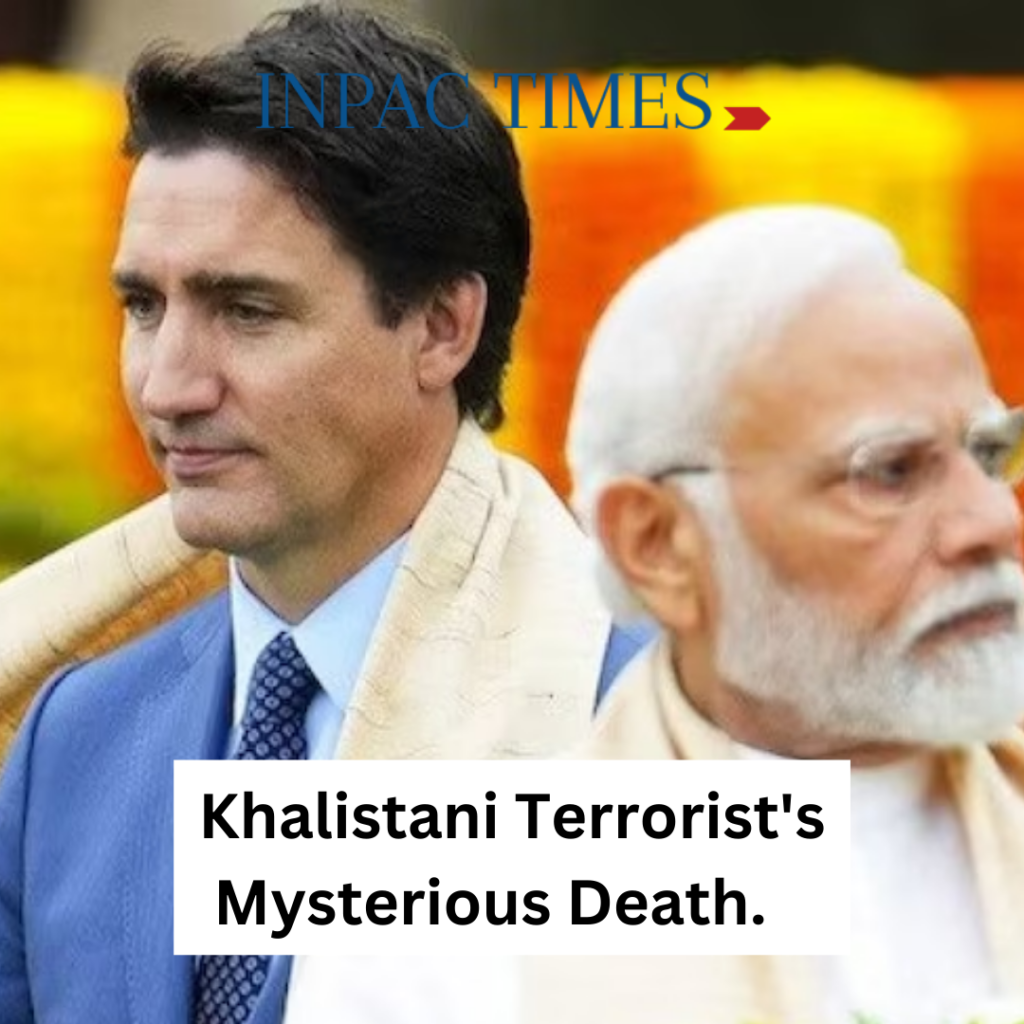Hardeep Singh Nijjar, the leader of the banned Khalistan Tiger Force (KTF) and a highly sought-after terrorist by the Indian government, was fatally shot by two unidentified assailants outside a gurdwara in Surrey, British Columbia, Canada.
The incident occurred on June 18 of this year. Surprisingly, months later, Canadian Prime Minister Justin Trudeau made allegations suggesting the involvement of the Indian government in Nijjar’s killing. It is worth noting that India had officially recognized Nijjar as a terrorist in 2020, further adding complexity to this unfortunate event.
Table of Contents
Hardeep Singh Nijjar’s Meeting with Canadian Intel Officials Raises Concerns
A recent report has brought to light a significant development in the case of Hardeep Singh Nijjar, a known Khalistani terrorist who was found dead under mysterious circumstances. The report suggests that Nijjar had a meeting with Canadian intelligence officials shortly before his untimely demise. This revelation has raised concerns and sparked further investigations into the incident.
Hardeep Singh Nijjar’s Mysterious Death
Hardeep Singh Nijjar, a prominent figure associated with the Khalistani movement, was discovered dead, leaving the circumstances surrounding his death shrouded in uncertainty. The suspicious nature of his demise has prompted speculations and questions regarding potential motives and those involved in the incident.
India’s Suspicions Point to ISI’s Involvement
In light of the recent developments, Indian authorities have hinted at the possible involvement of Pakistan’s Inter-Services Intelligence (ISI) in Nijjar’s killing. The Indian government suspects that Nijjar’s active participation in anti-India activities may have made him a target, with the ISI potentially playing a role in his elimination.
The Khalistani Movement and India’s Concerns
The Khalistani movement aims to establish a separate Sikh state, known as Khalistan, within the Indian state of Punjab. It gained prominence in the 1980s and has since been a cause of concern for the Indian government due to its history of violence and alleged external support. The presence of Khalistani elements and their activities pose a threat to national security and stability.
Investigation Launched to Uncover the Truth of Khalistani
Indian authorities, in collaboration with their Canadian counterparts, have launched an investigation to unravel the circumstances surrounding Nijjar’s death. The focus of the inquiry is to determine the nature of Nijjar’s meeting with Canadian intelligence officials and ascertain any potential links between external agencies and his killing. The investigation aims to shed light on the motives and individuals involved, ensuring justice is served and any external involvement is exposed.
As the investigation progresses, it will be crucial to uncover the truth behind Nijjar’s killing and bring the culprits to justice. The cooperation between Indian and Canadian authorities will play a vital role in ensuring a thorough and impartial inquiry. The findings will not only provide closure for Nijjar’s family but also help address the larger issue of external support for the Khalistani movement, safeguarding national security and regional stability.
